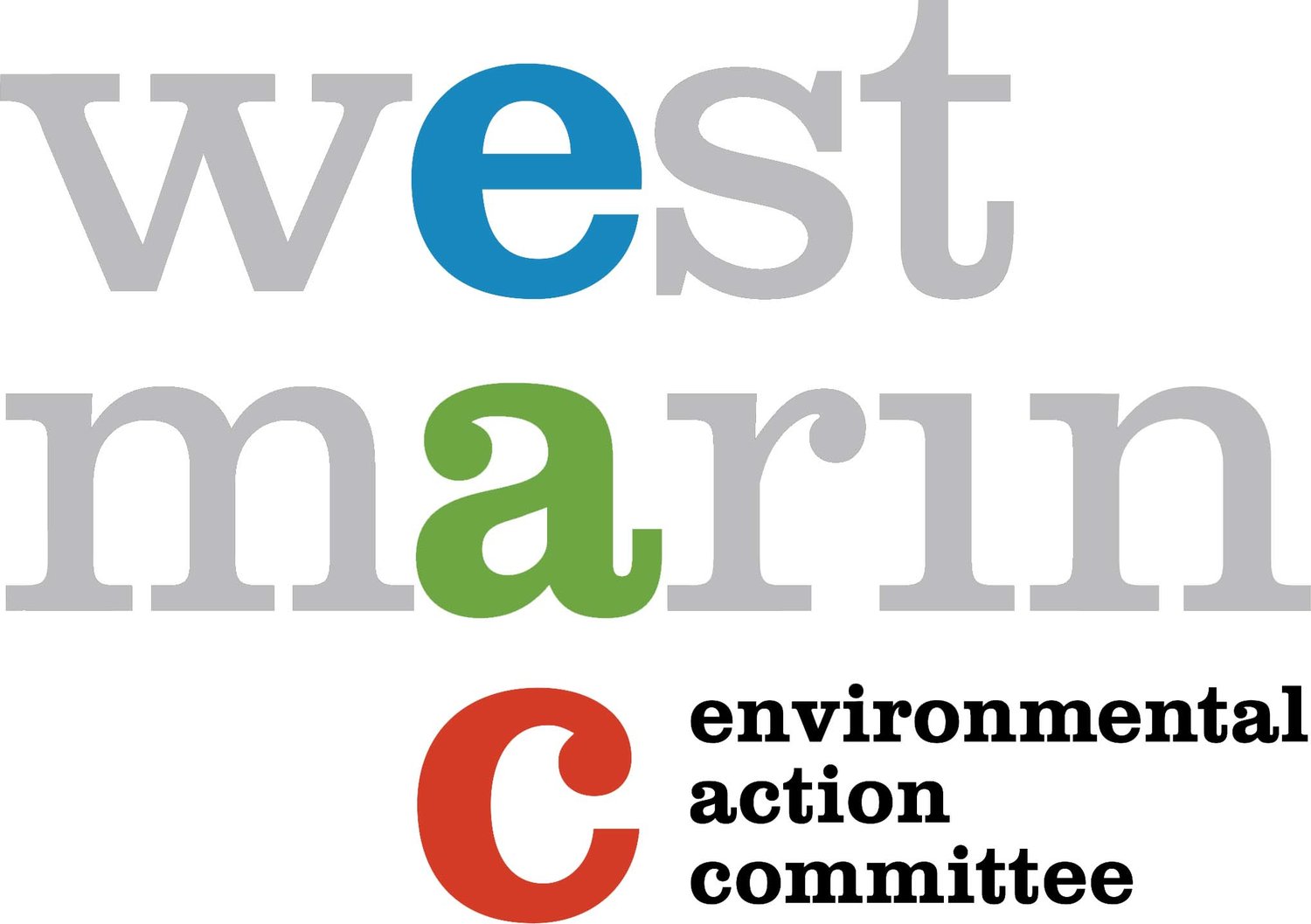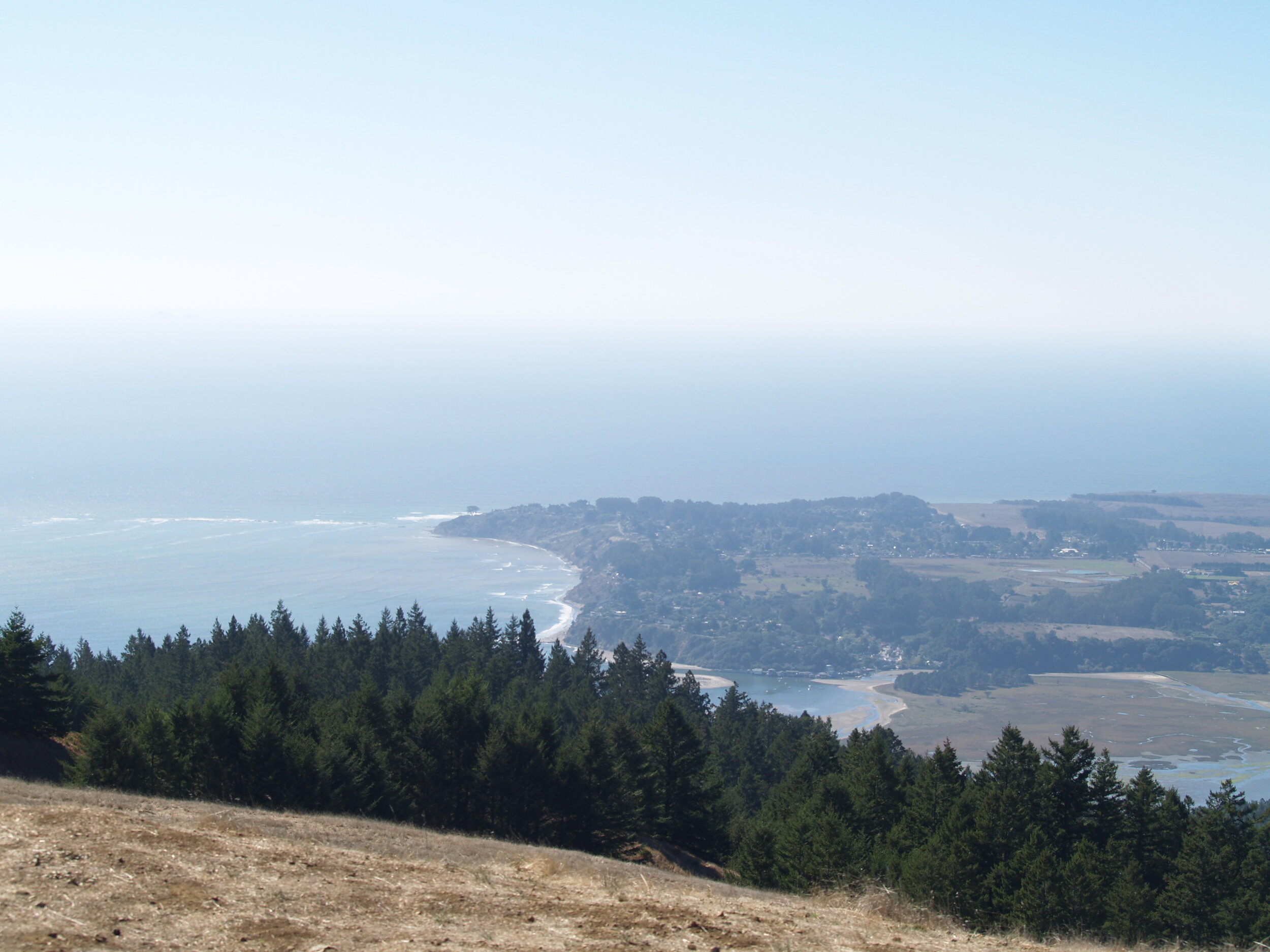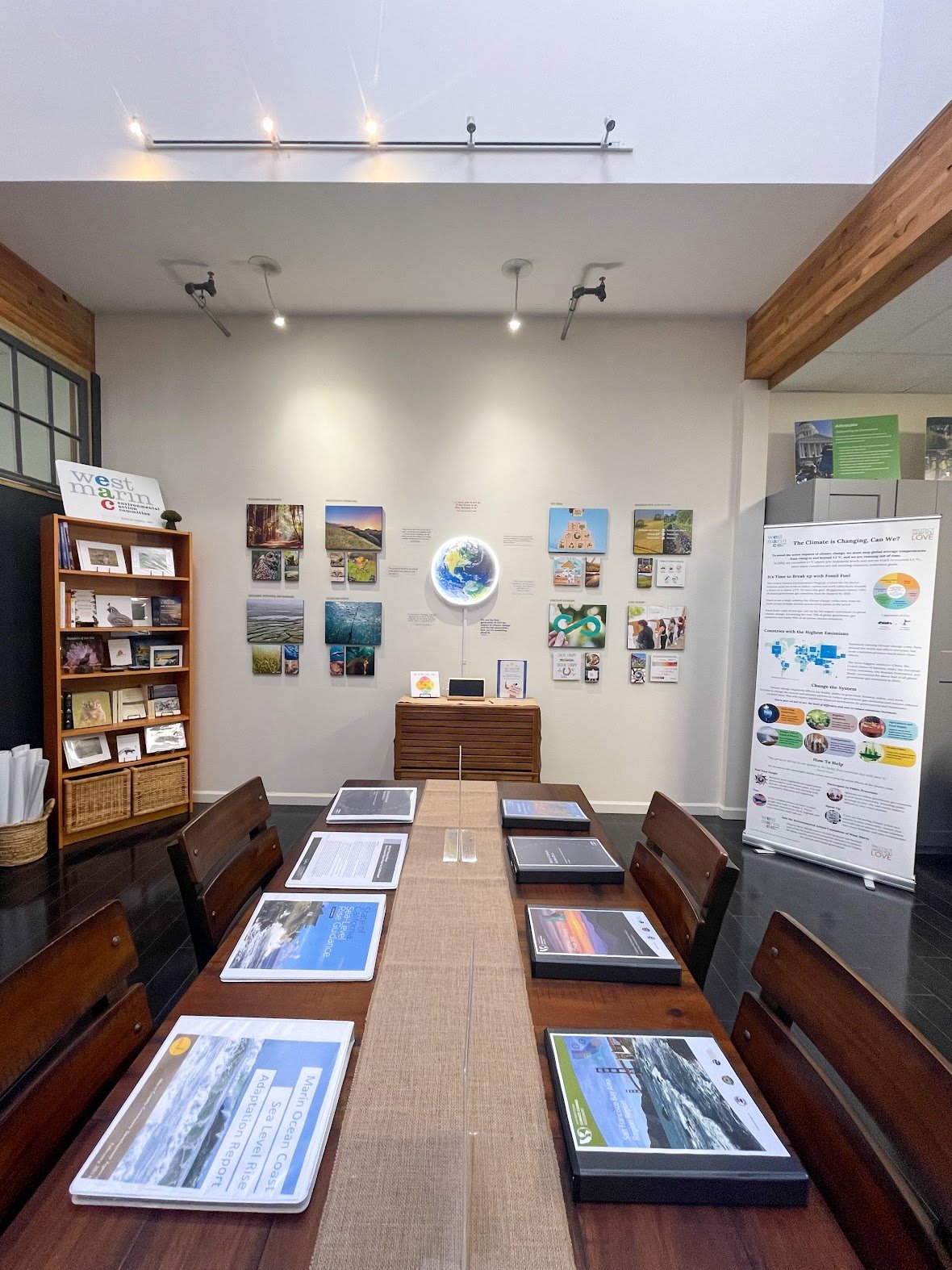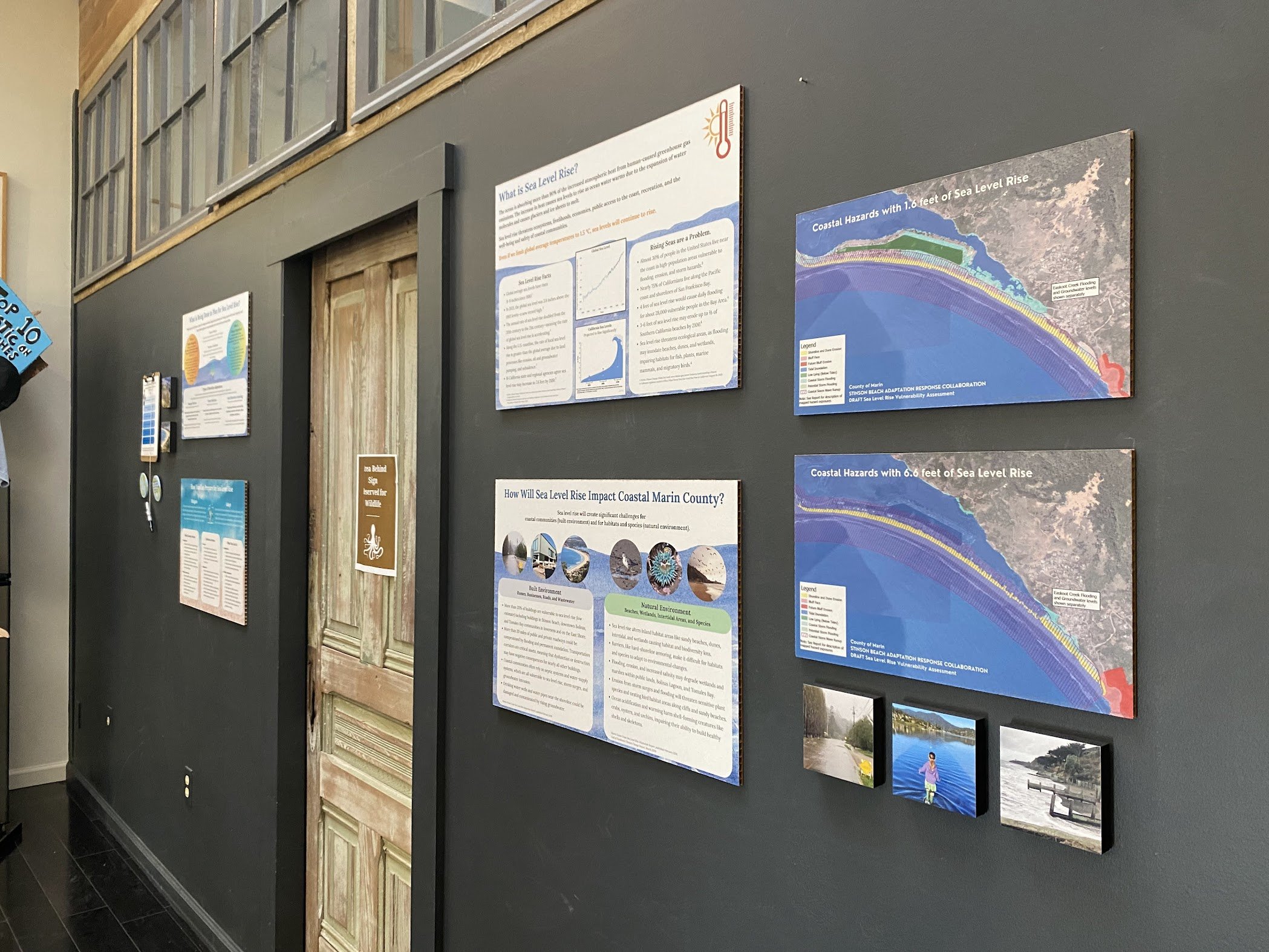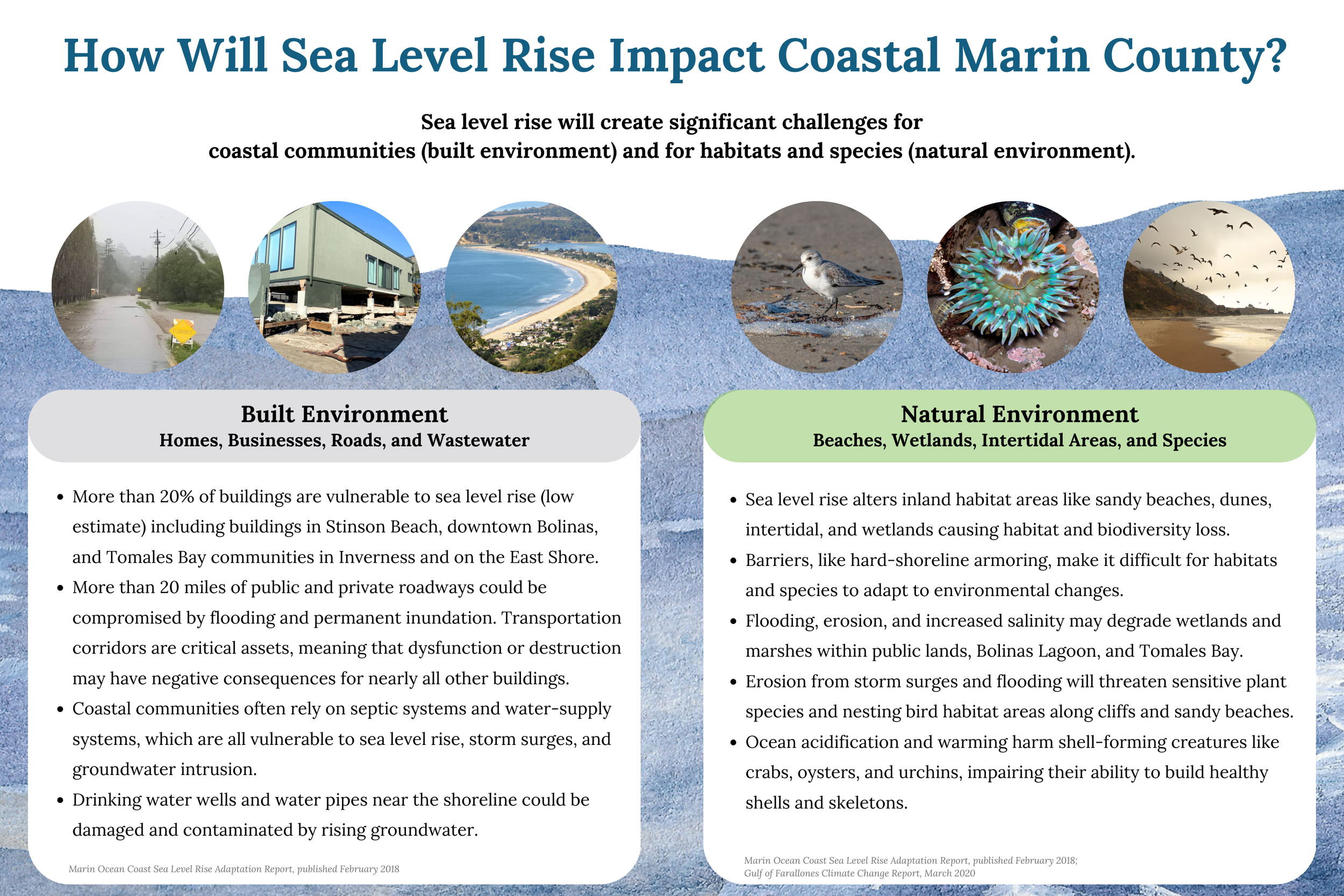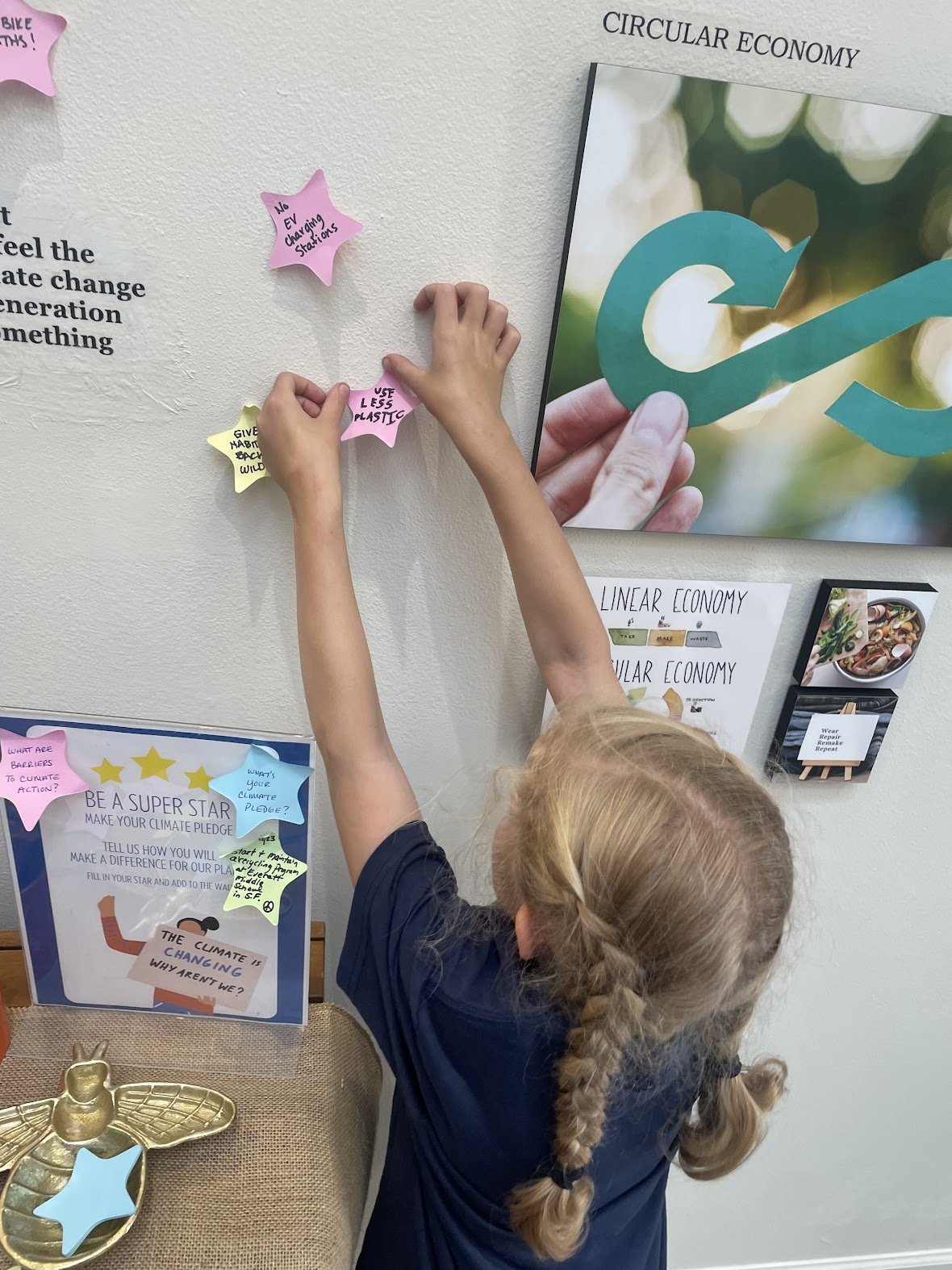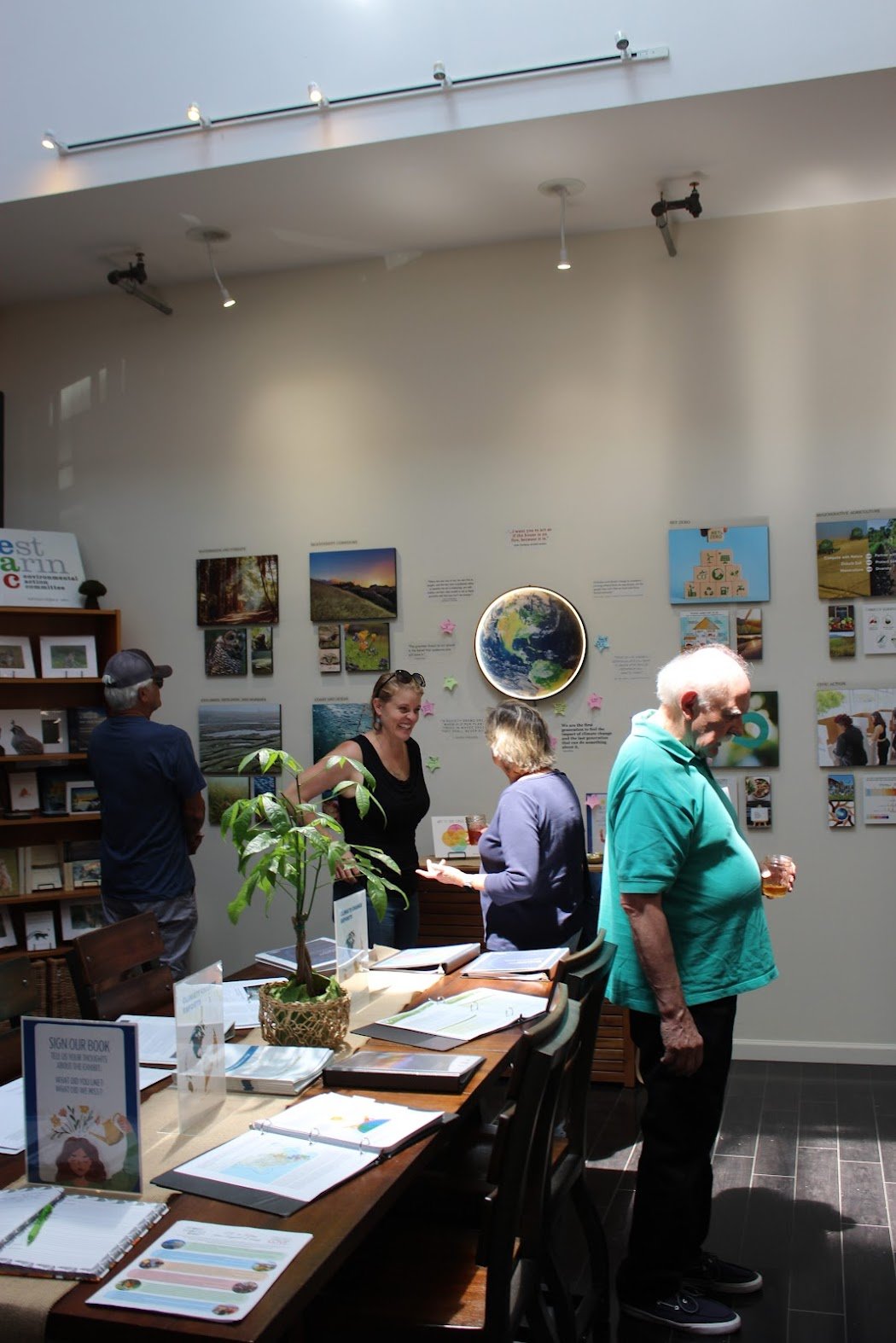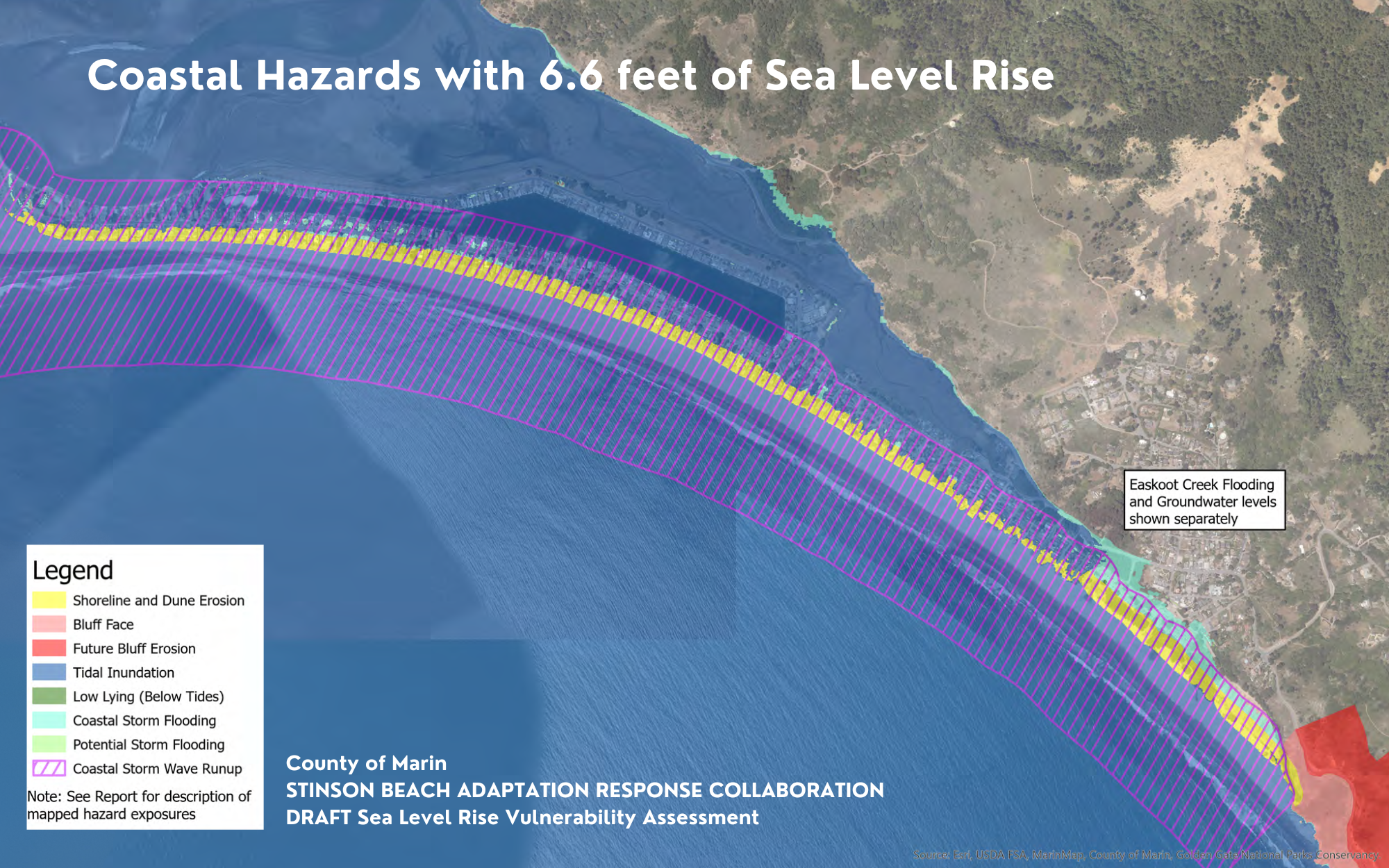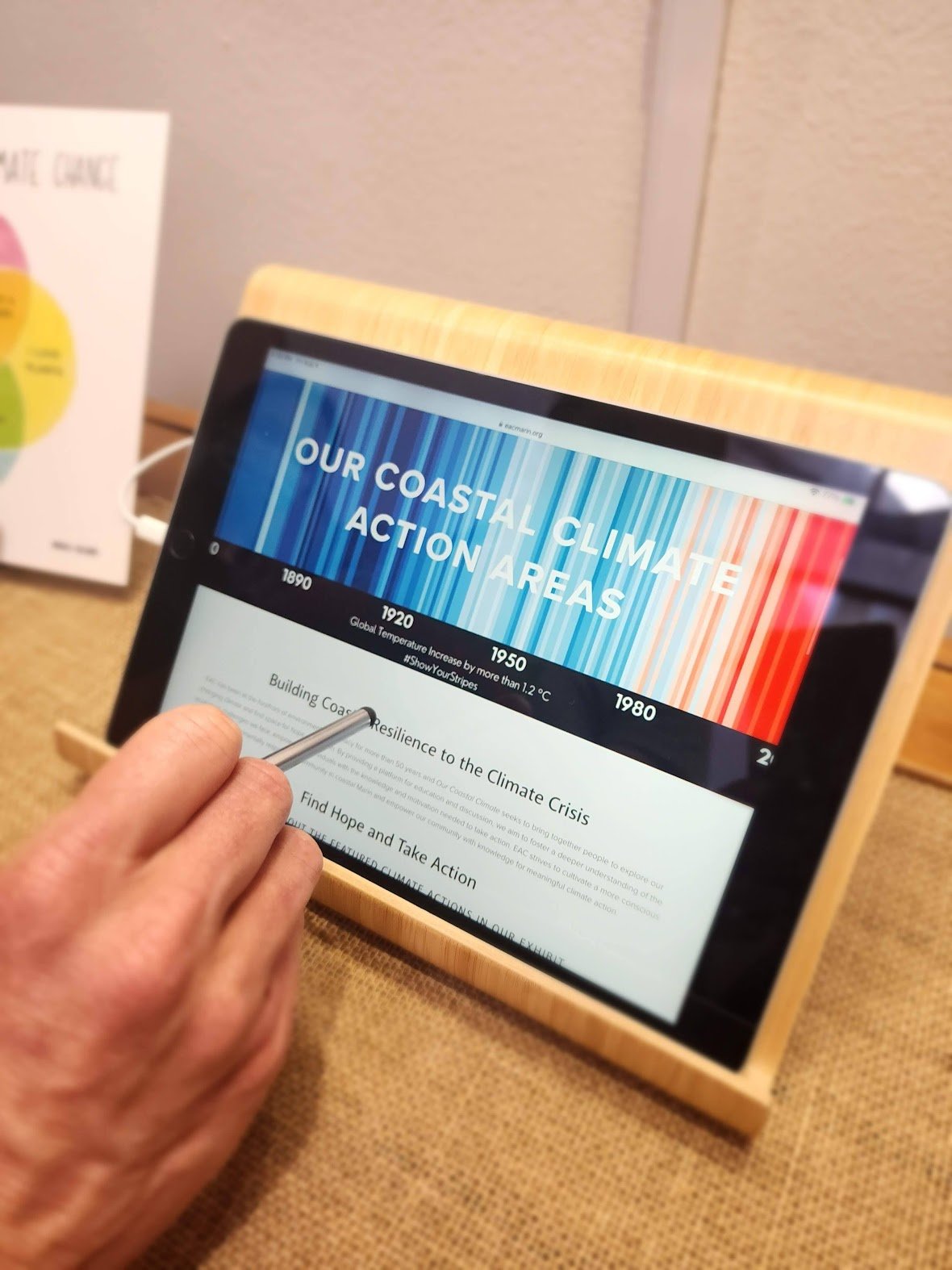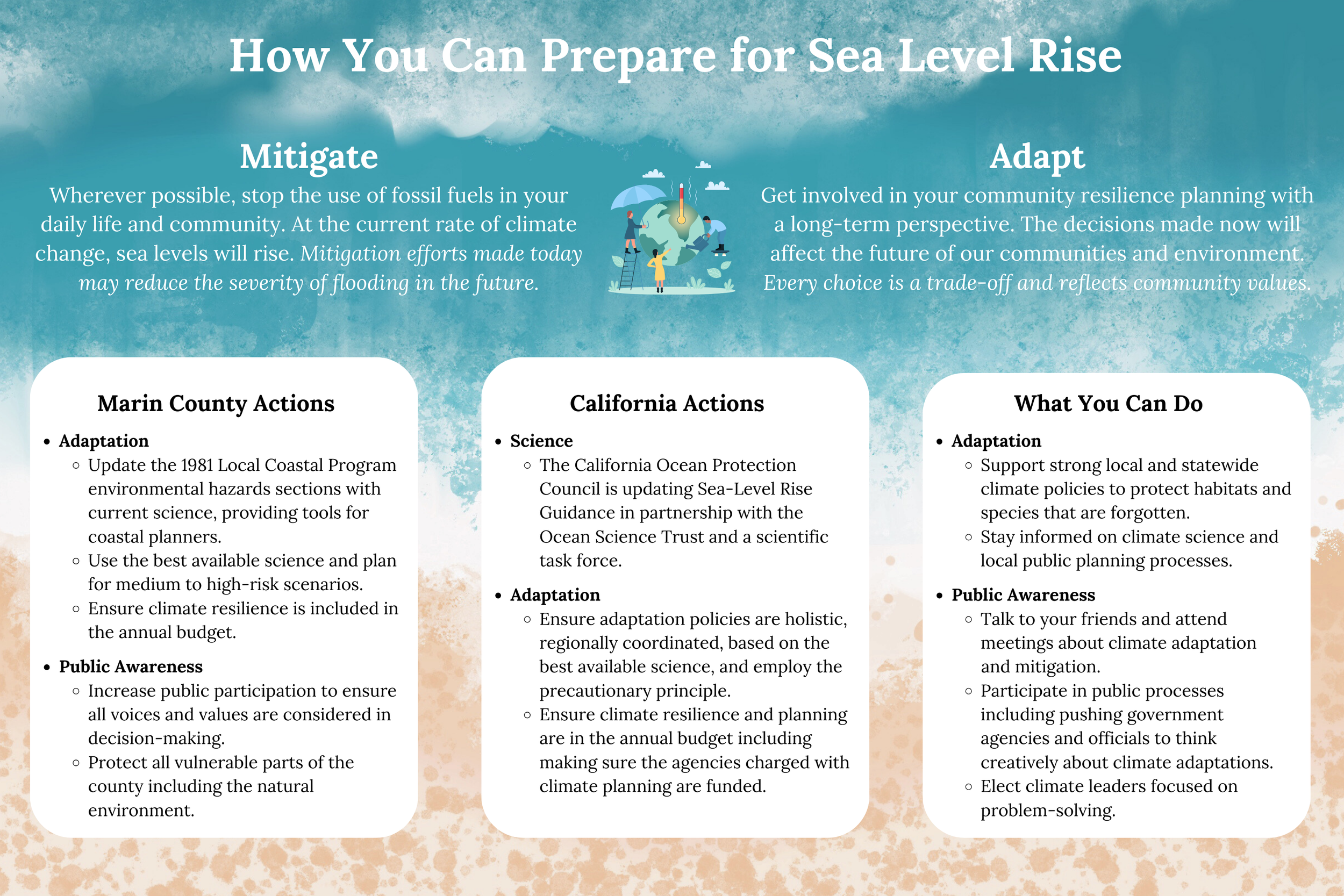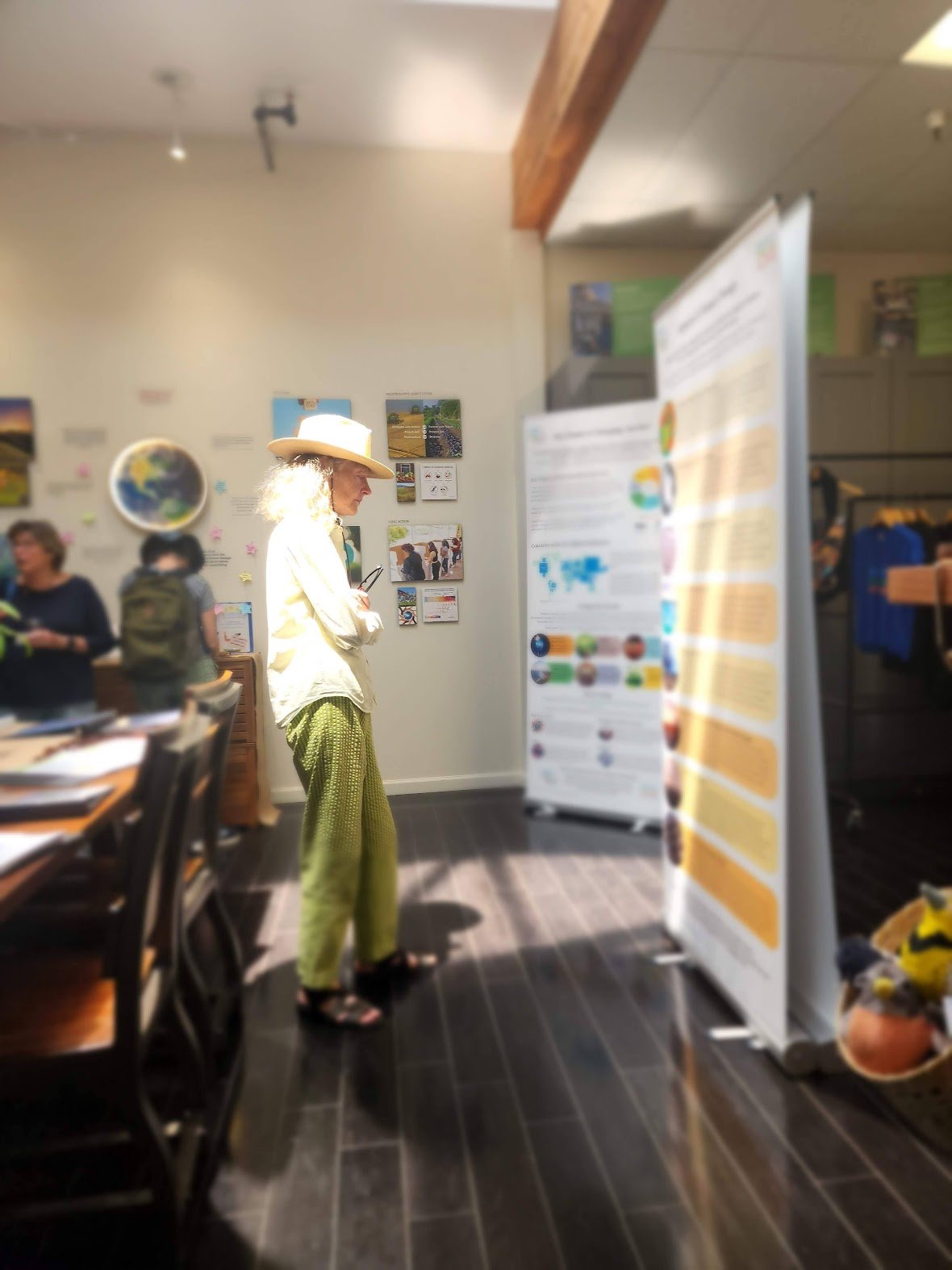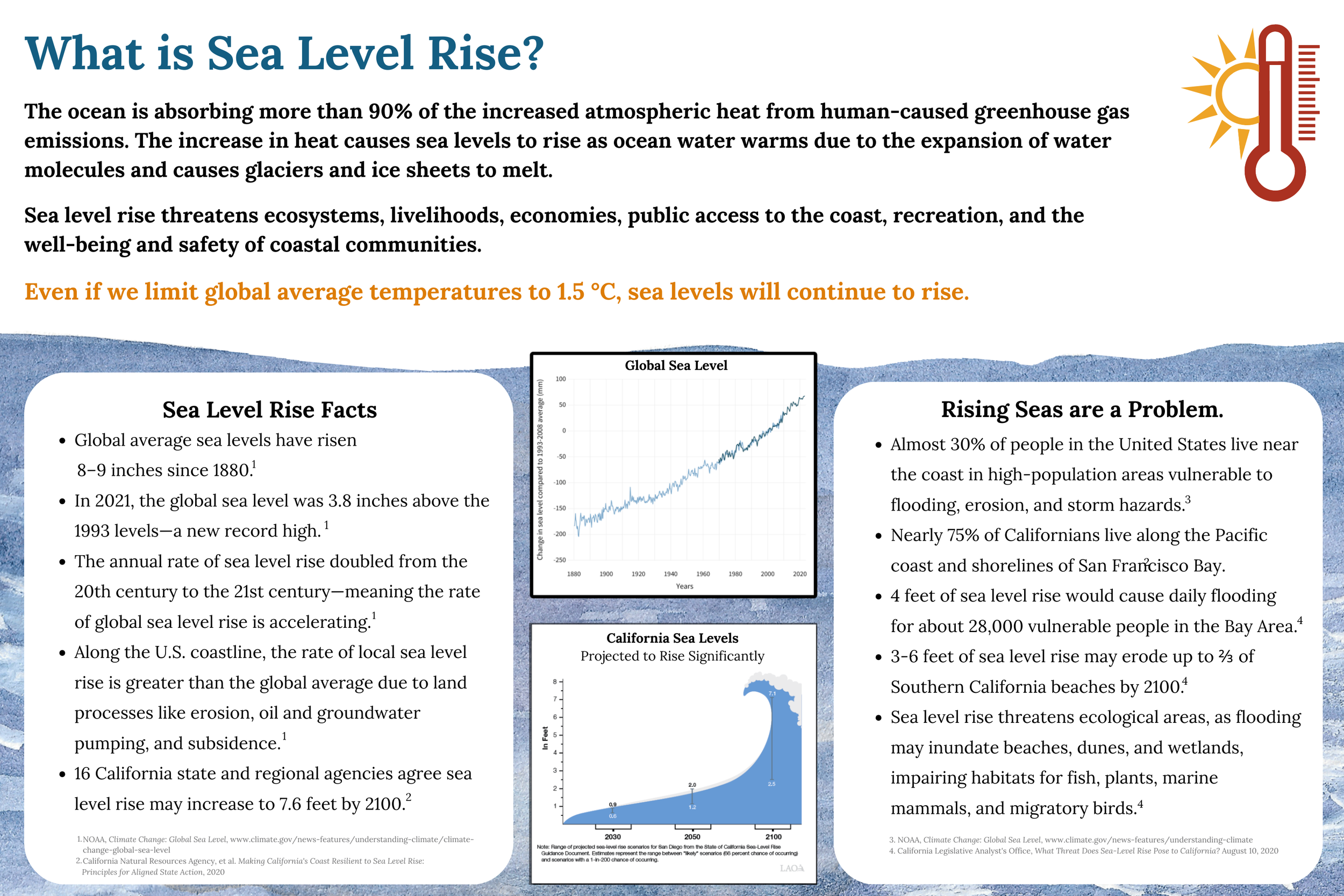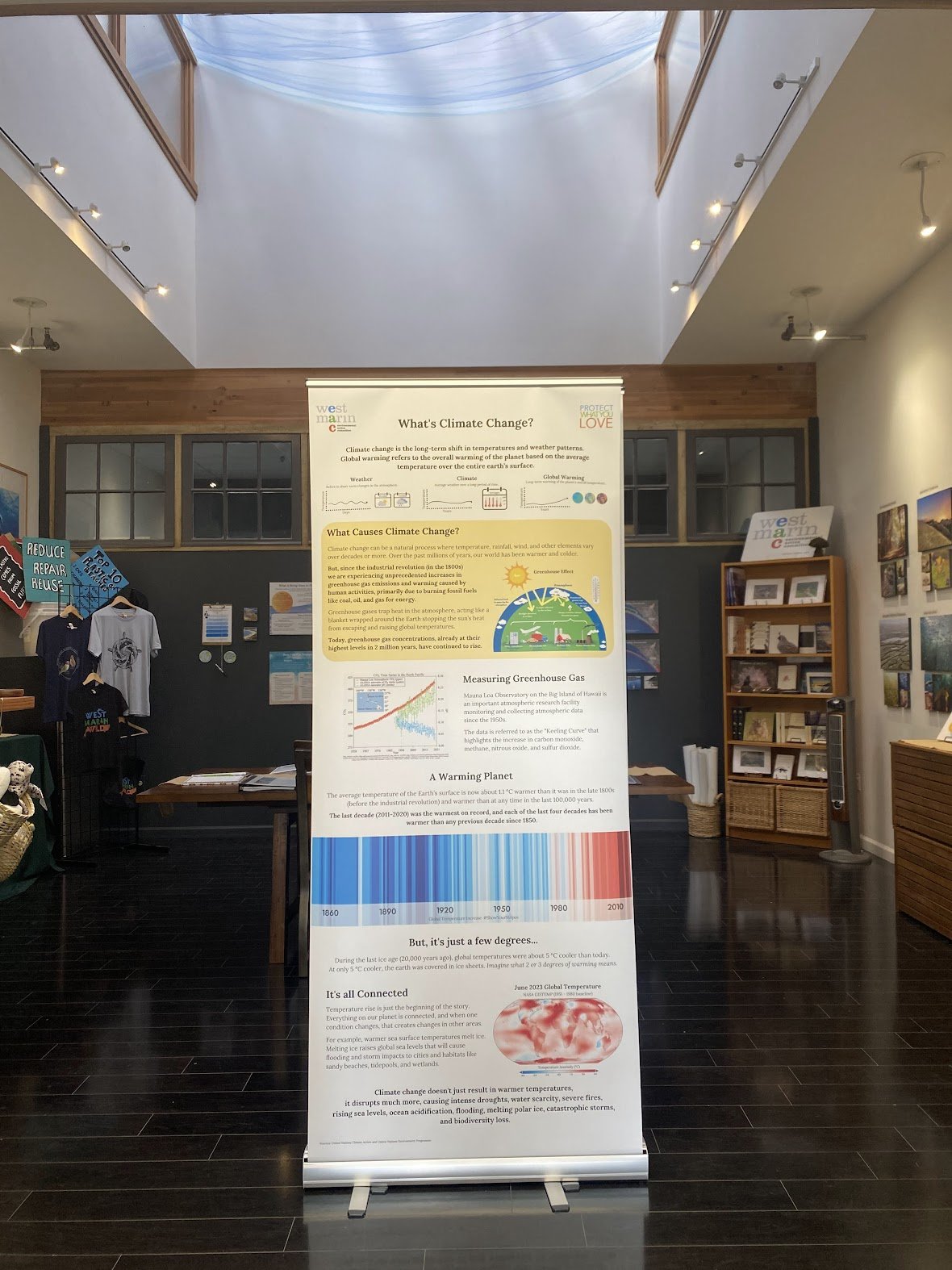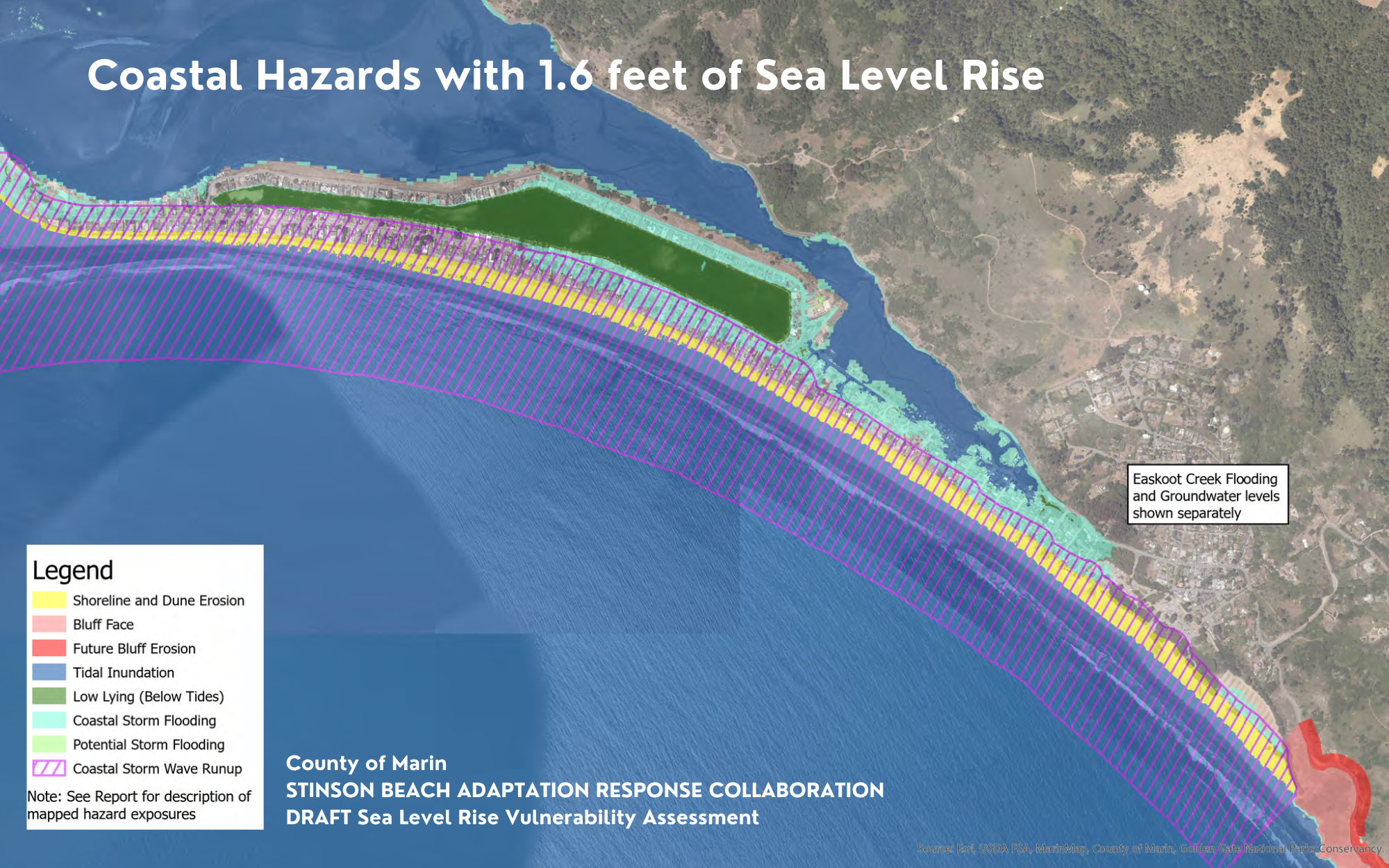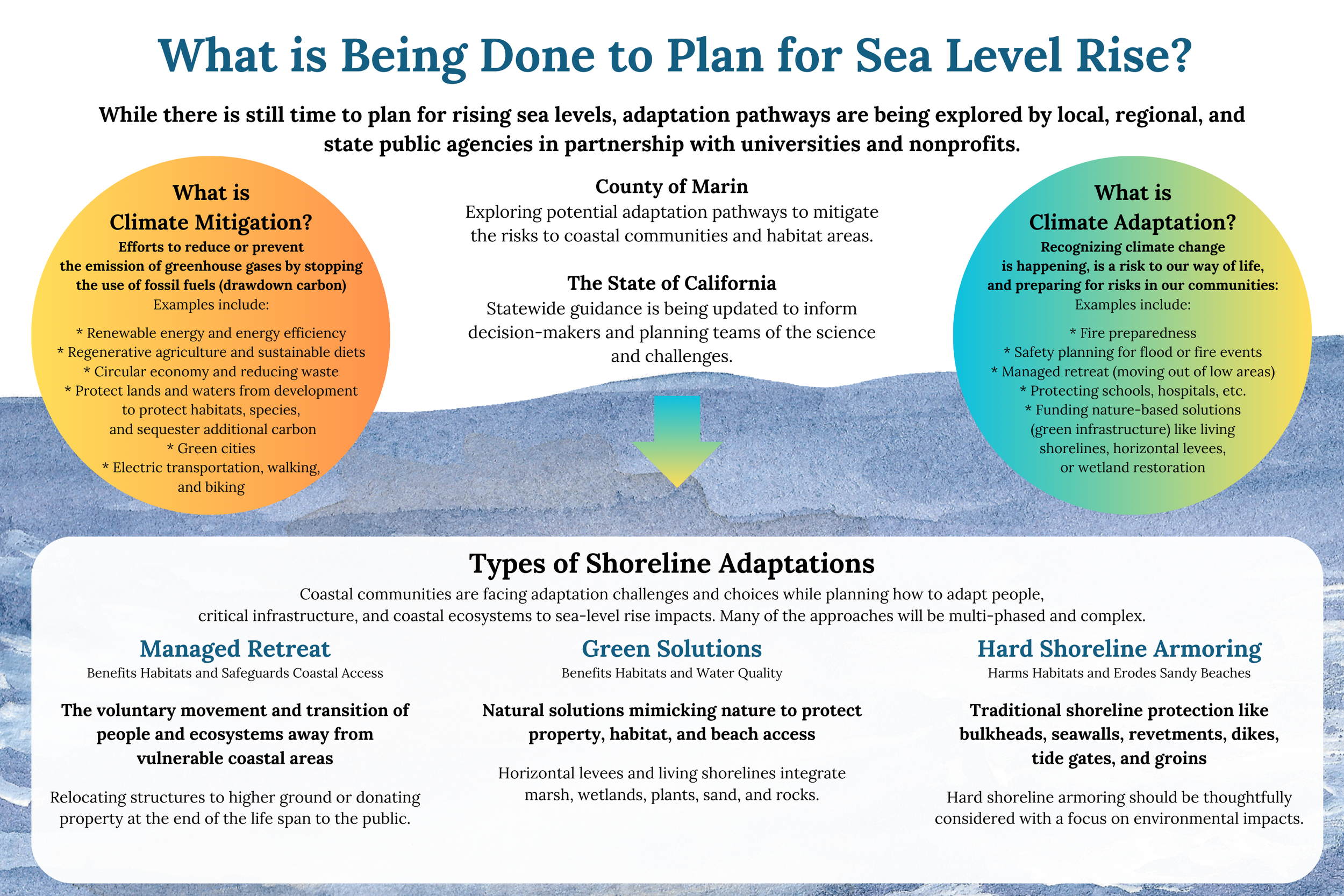The Climate Crisis Will Dramatically Impact Our Coastal Communities in Marin County
Learn how you can take action!
Over the past century, global sea levels have increased by 8 inches, according to NASA, and are expected to rise up to 7 feet in California by 2100. This rise will lead to more frequent and severe coastal flooding, along with other hazards such as groundwater emergence and pollution. Shoreline erosion from rising seas and storm surges will affect beaches, cliffs, wetlands, and riparian areas, endangering homes, roads, and infrastructure in Marin County. Additionally, the destruction of critical habitats threatens valuable ecosystem, species, and recreational services.
The climate crisis is expected to exacerbate the already dry Mediterranean climate of our region, leading to more frequent and severe droughts, heatwaves, and fires. Global temperatures have risen by 1.7°F and could increase by 5.6-8.8°F by 2100, affecting public health, air quality, and the survival of flora and fauna. These changes pose complex challenges for communities, often forcing choices between protecting infrastructure and preserving natural ecosystems.
Since 1971, the Environmental Action Committee (EAC) of West Marin has aimed to protect vital habitats, focusing on preventing irresponsible development to maintain rural communities and environmental connections.
Looking ahead, the EAC is committed to supporting climate adaptation strategies informed by current science, fostering community engagement, and building community resilience. Our work includes advocacy, engagement, habitat protection, and resiliency plans. We engage with our community by raising awareness through outreach and education, providing opportunities for the community to get involved and learn about the causes, possible solutions, and actions one can take.
Combating the Climate Crisis
protecting habitat (LAND & SEA)
Mount Tamalpais overlooking Bolinas. Photo © EAC
Protecting habitat on land and in the water is a critical part of community resilience. We support restoration of open space, park land, and wilderness to protect habitat in a changing climate. We also work to protect our coastal and marine environment, through advocacy and data collection of Marine Protected Areas in Marin County that provide critical habitat to assist in for ocean resiliency.
LEARN MORE:
• Protect Estuaries, Wetlands, and Tidal Mudflats
• Defend and Restore Resilient Watersheds and Forests
POLICY
Sunrise Movement Protest. Photo © DisobeyArt
We focus on local and state-wide policy solutions to reduce greenhouse gases, move away from fossil fuels, and mitigate climate change impacts. We support local and state agencies working together with communities, including conducting scientific research to better understand climate change’s implications and collaboratively present potential solutions.
We advocate for decarbonization and local regulations to ensure that Marin takes proactive steps to eliminate activities that support continued reliance on fossil fuels by the oil and fracking industry.
In addition, we seek to reduce and eventually eliminate harmful bi-products of the fossil fuel industry in our community and habitats, like single-use plastics, through community engagement and youth advocacy.
LEARN MORE:
• Protect the Pacific/Offshore Oil
• Youth Against Single-Use Plastics
• Discover, Connect, Respect Marin County Coast- Stewardship Guide
• Getting to Net Zero — Breaking Up with Fossil Fuels
• Offshore Wind Considerations - Christopher Mouawad, Legislative Fellow - 4/5/2024
community engagement
Climate Conversation, November 2019. Photo © EAC
Combating the climate crisis is a community effort, and we believe forging strong community partnerships is essential. We are working to strengthen and build local community partnerships and coalitions to provide education, coordinate events, and identify actionable items to mitigate, adapt, and respond to our shared mission objectives to combat the climate crisis.
LEARN MORE:
• MarinCAN
RESILIENCE AND ADAPTATION
Climate Impacts. Photo © Belterz
To protect coastal resources in West Marin, we monitor projects that propose restoration, adaptation, and mitigation strategies to respond to symptoms of the climate crisis (coastal flooding, sea level rise, etc.). Our primary goal is to ensure projects provide an overall community benefit and are the best potential solutions for our local climate adaptation.
LEARN MORE:
• Adaptation Planning & Implementation
• Marin County, Local Coastal Program Amendments
• Collaboration: Sea-Level Marin Adaptation Response Team (C-SMART)
LOCAL RESOURCES
SUSTAINABILITY
The Sustainability Team works to support healthy, safe and sustainable communities while preserving Marin’s unique environmental heritage. The team has developed programs to promote renewable energy, address climate change, encourage green building, recognize green businesses and implement energy efficiency projects in County schools, special districts and cities and towns. These policies and programs will ensure that the County of Marin is healthy, vibrant and sustainable for many generations into the future.
CLIMATE ACTION PLAN
The County publishes annual community greenhouse gas (GHG) emissions estimates through the Marin Climate & Energy Partnership (MCEP). Annual inventories help the County to monitor its progress in meeting its Climate Action Plan (CAP) goal to reduce community emissions 40% below the 1990 level by 2030 through mitigation measures. This report reviews emissions generated from the unincorporated Marin area from 2005 through 2019, the most recent year data is available. The inventory shows that the County has reduced emissions 21% since 2005, which is equivalent to 7% below estimated 1990 levels.
SEA-LEVEL RISE AND ADAPTATION
Rising sea levels and more severe storm flooding as a result of climate disruption are impacting us here in Marin County. These impacts are expected to increase in frequency and severity as sea level rise accelerates.
COMMUNITY & ADVISORY ROLES
EAC's Lands, Waters, and Biodiversity Committees provide expertise and advice on the complicated issues facing our environment. Committees explore the details on issues and make recommendations to the EAC board, as well helping guide staff decision-making. Part of this work includes considering the impacts of climate change on our environment and community with a goal to increase resilience, adaptation, and mitigation strategies.
Our staff engages in community working and planning groups to advance our mission.
WEST MARIN CLIMATE ACTION
West Marin Climate Action informs and mobilizes our community to adapt to and help mitigate climate impacts, increasing our local resilience and equity while contributing to the global solutions needed now. West Marin Climate Action, Steering Committee, Morgan Patton, Executive Director (2019-current)
DRAWDOWN MARIN
Drawdown: Marin is a community-driven campaign to dramatically reduce greenhouse gas (GHG) emissions, prepare for climate change impacts, and meaningfully address and integrate equity. Drawdown: Marin works with Marin County residents, businesses, organizations, agencies, and local governments to design and implement local climate change solutions in six areas: Renewable Energy; Transportation; Buildings and Infrastructure; Local Food and Food Waste; Carbon Sequestration’ and Climate Resilient Communities. Drawdown: Marin, Community Stakeholder, and Equity Task Force Member (2020-March 2021).
Climate Change Research, Planning, & Guidance
California
NATIONAL & Global
Climate Exhibit
In 2023 EAC produced "Our Coastal Climate," an educational exhibit designed to bring people together to learn about our evolving climate and discover opportunities for hope and action. We are eager to see this exhibit reach a wider audience. If your school or organization is interested in educating about climate change and would like to incorporate this mobile exhibit, please contact us for further details.
